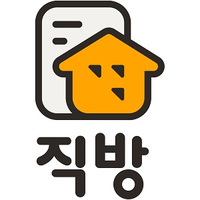기숙사 생활과 자취 생활– 장단점
Accommodation has long been one of the most concerning issues among international students who travel abroad, be it for studying or work. International students in Korea are no exception; many of them still debate whether to stay in dorms or to move out to a rented house. This article will tell you the advantages and disadvantages of each accommodation and we hope that it helps you in making your decision.
숙소는 오랫동안 공부를 위해 먼 거리를 여행하는 국제 학생들 사이에서 가장 우려되는 문제 중 하나였습니다. 한국의 유학생들도 예외는 아닙니다. 그들 중 많은 학생이 여전히 기숙사에 아니면 셋집을 위해 이사를 할지 논쟁하고 있습니다. 이 기사에서는 각 숙박시설의 장단점을 알려드리며 귀하의 결정에 큰 도움이 되기를 바랍니다.
Dormitory:
기숙사:
Pros:
장점:
1. Safety
Living in the dorm may be the safest choice for those who come to Korea for the first time. In many universities, they offer accommodation for freshmen as a support for those who are not familiar with Korean life. Furthermore, the dormitory always has security staffs and CCTV systems; hence creating a safe environment for students; especially those who are in the first year of university.
1. 안전성
한국에 처음 온 사람들에게는 기숙사에서 사는 것이 가장 안전한 선택일 수도 있습니다. 많은 대학에서 한국 생활에 익숙하지 않은 사람들을 위한 지원으로 신입생들에게 숙소를 제공하고 있습니다. 게다가, 기숙사는 항상 보안요원과 CCTV 시스템을 갖추고 있어서, 특히 대학 1학년 학생들을 위한 안전한 환경을 조성합니다.
2. Social bonding
Notably, there are also residential activities such as book club and language exchange activities, which are designated for dormitory residences. By joining those activities, students may get a chance to broaden their circle of relationships with their colleagues.
2. 사회적 유대감
특히 기숙사 거주지용으로 지정된 독서 모임, 언어교환 활동 등 주거 활동도 있습니다. 이러한 활동에 참여함으로써, 학생들은 동료들 사이의 관계 범위를 넓힐 기회를 얻을 수 있습니다.

Cons:
단점:
1. Regulation obedience
The safety of the dormitory may be a double-edged sword as students have to strictly obey the dorm regulations, otherwise, they would receive a penalty. For instance, sometimes because of the curfew, students are not able to hang out late with friends. However, as a person who has spent 8 months living in the dorm, I would say that obeying the regulations is not a big deal and I am well used to this system.
1. 규정과 순종
학생들이 기숙사 규정을 엄격히 준수해야 하므로 기숙사의 안전은 양날의 칼이 될 수 있습니다. 그렇지 않으면 그들은 처벌을 받게 되는 예도 있습니다. 예를 들어, 때때로 통금 시간 때문에, 학생들은 친구들과 늦게까지 노는 것을 막을 수 있습니다. 하지만 8개월 동안 기숙사에서 생활한 사람으로서, 규정을 지키는 것은 여러분 자신의 안전과 태도에도 도움이 되기 때문에 큰 문제가 되지 않는다고 말하고 싶습니다.
2. Effects on daily routine
Living in the dorm, more or less, may pose an impact on your daily routine, especially your everyday meals. From my own experience, since the kitchen is pretty far from my room, I barely go there to cook and usually eat instant food. As a result, my digestion is negatively affected and it is obviously harmful to my health. Furthermore, having a roommate also requires us to adjust our routine to accommodate the other person’s needs. If not, there will be conflicts that can ruin the room’s atmosphere.
2. 일상에 미치는 영향
기숙사에서 사는 것은, 어느 정도든, 여러분의 일상, 특히 매일 먹는 것에 영향을 줄 수 있습니다. 제 경험상, 부엌이 제 방에서 꽤 멀기 때문에, 저는 거의 요리를 하지 않고 주로 인스턴트 음식을 먹습니다. 그 결과, 제 소화는 부정적인 영향을 받고 분명히 건강에 해롭습니다. 더군다나, 룸메이트를 갖는 것은 또한 우리에게 가장 좋은 때에 서로에게 맞도록 일상을 바꿀 것을 요구합니다. 그렇지 않으면, 갈등이 있을 수도 있고 우리는 모두 그런 일이 일어나지 않기를 바랍니다.
Rented house:
임대주택
Pros:
장점:
1. More freedom and space:
In contrast to dormitory life, the very first benefit of living outside the dorm is freedom. This may especially apply to those who do night-shift part-time jobs. When living in your own “rented” house, you can even freely cook your fresh meals whenever you want without relying on instant food.
1. 더 많은 자유와 공간
기숙사 생활과는 대조적으로, 기숙사 밖에서 사는 것의 가장 첫 번째 장점은 자유입니다. 이것은 특히 야간 아르바이트를 하는 사람들에게 적용될 수 있습니다. 여러분 자신의 "임대" 집에서 살 때, 여러분은 심지어 전에 언급했듯이 건강에 좋지 않은 인스턴트 음식을 사용하지 않고도 여러분의 신선한 음식을 자유롭게 요리할 수 있습니다.
2. Quieter environment and less distraction:
When living off-campus, you probably have your own room; hence do not get disturbed by other people. This actually can boost your concentration; thus, improving your concentration while you study. Furthermore, living in such an environment may provide more privacy and may be good for your mental health.
2. 환경이 조용하고 주의가 산만하지 않다.
캠퍼스 밖에서 살 때, 여러분은 아마 여러분만의 방을 가지고 있을 거예요. 그래서 다른 사람에게 간섭받지 마세요. 이렇게 하면 집중력이 향상되어 연구 결과를 향상시킬 수 있습니다. 게다가, 그러한 환경에서 사는 것은 여러분에게 더 많은 사생활을 제공하고 정신적인 안정에 도움이 될 수 있습니다.
Cons:
단점
1. Sometimes living off-campus may be more expensive
In Korea, the deposit fee is commonly high, which can be a financial burden for foreign students as they are usually here on scholarships. Furthermore, different from living in the dorm, when living off-campus, students have to pay the electricity fee, gas fee, water fee on their own. The bill sometimes exceeds the planned budget for the first few months.
1. 때때로 캠퍼스 밖에서 사는 것이 더 비쌀 수도 있다.
한국에서는 보통 보증금이 비싸서 일부 사람들에게는 금전적인 부담이 될 수 있습니다. 게다가, 기숙사에서 생활하는 것과는 다르게, 캠퍼스 밖에서 생활할 때, 학생들은 전기 요금, 가스 요금, 수도 요금을 스스로 지급해야 합니다. 청구서가 처음 몇 달 동안 계획된 예산을 초과하기도 합니다.
2. Finding a suitable house is not an easy task
In Korea, there are several house-renting apps, where you can look for a place to live. However, sometimes, the online photo and the reality is totally different. Therefore, it is highly recommended to go to the real-estate office to ask for help. Having decent Korean skill may be an advantage because most of the real-estate offices in Korea do not provide English service, or if yes, the real-estate fee is higher than normal.
2. 적당한 집을 찾는 것은 쉬운 일이 아니다.
한국에는, 사진을 검색할 수 있는 여러 집 임대 앱이 있습니다. 하지만, 때때로 온라인 사진과 현실은 완전히 다릅니다. 따라서, 도움을 요청하기 위해 부동산 사무실에 가는 것이 매우 권장됩니다. 한국 대부분의 부동산 사무실이 영어 서비스를 제공하지 않기 때문에 어느 정도 한국어 실력이 필요합니다. 만약 영어를 하는 부동산이면 수수료가 더 많이 나올 수 있다는 점 알아두세요.

Zigbang – one of the most popular housing app in Korea
Zigbang – 한국에서 가장 인기 있는 주택 앱 중 하나입니다.
Author: Tam Tran
Editor: Manisha
Publisher: Martina

Comments